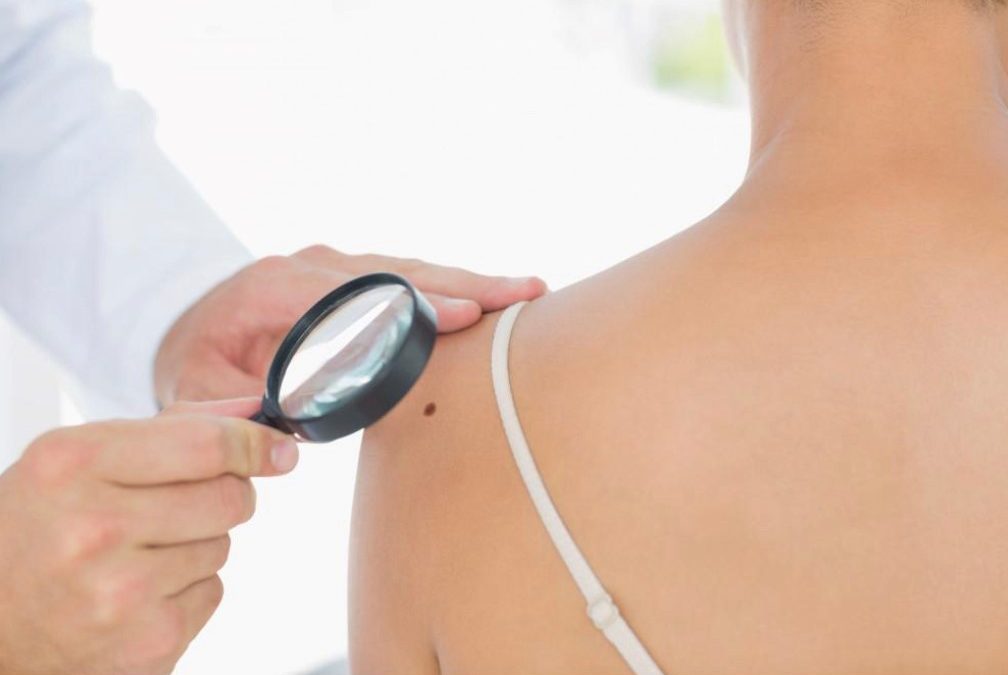How Often Should I Have a Skin Cancer Check?
Skin cancer is the most common type of cancer. There are several types of this skin cancers, including melanoma, non-melanoma skin cancers such as basal cell carcinoma or squamous cell carcinoma, and other less common skin cancers.
Basal cell carcinoma (BCC) is the most common skin cancer. It presents as sores, red patches, pink growths, shiny bumps, or scars and is usually caused by a combination of cumulative and intense, occasional sun exposure. BCC almost never spreads beyond the original tumour site.
Squamous cell carcinoma (SCC) is the second most common skin cancer. It is sometimes called cutaneous squamous cell carcinoma (cSCC) to differentiate it from very different kinds of SCCs elsewhere in the body.
Malignant melanoma is less common than non-melanoma skin cancers, but it is one of the most dangerous forms of skin cancer. It can develop from existing mole, but it more often appears as a new mole on the skin. If melanoma is recognized and treated early, it is almost always curable, but if it is not, the cancer can advance and spread to other parts of the body, where it becomes hard to treat and can be fatal.
Diagnosis of skin cancers is usually based on clinical features. To confirm the diagnosis, a small piece of the abnormal skin (skin biopsy), or the whole area (an excision biopsy), is removed under a local anaesthetic and sent to a pathologist to be examined.
Skin cancers often do not cause any symptoms and can easily go by undetected without regular screening. It is important to have your skin checked for skin cancer regularly because the prognosis tends to be better when it is caught in one of the earlier stages (early detection of skin cancer).
The frequency of skin cancer checks, also known as skin cancer screenings or full skin examinations, can vary based on several factors including your personal and family history of skin cancer, risk factors, and the recommendations of your doctor. If you have never had your skin examined for skin cancer, your GP will tell you during your first cancer screening how often you should be evaluated. A conversation about your family’s health history, your medical records, and your lifestyle are required to make this determination. It’s important to consult with a healthcare professional for personalized advice. However, here are some general guidelines:
- Patients with low risk: For patients with no personal history of skin cancer and no significant risk factors (such as a family history of melanoma, excessive sun exposure, immunosuppression), an annual skin cancer check may be sufficient.
- Patients with high risk: If you have a history of skin cancer (including basal cell carcinoma, squamous cell carcinoma, or melanoma) or if you have other risk factors (e.g., a family history of melanoma, fair skin, numerous moles, frequent sun exposure), more frequent skin cancer checks may be recommended. This could range from every 3 to 6 months, depending on your risk level and healthcare provider’s recommendations.
- Self-examination: It is very important to be aware of skin cancer symptoms and monitor your skin. Regardless of your risk level, it’s essential to perform regular self-exams of your skin to monitor for any changes, new moles, or suspicious growths. If you notice anything unusual, promptly consult a healthcare professional. It is recommended you check your skin thoroughly once a month, although if you have previously suffered with skin cancer you may well be required to check more frequently.

Recent Comments